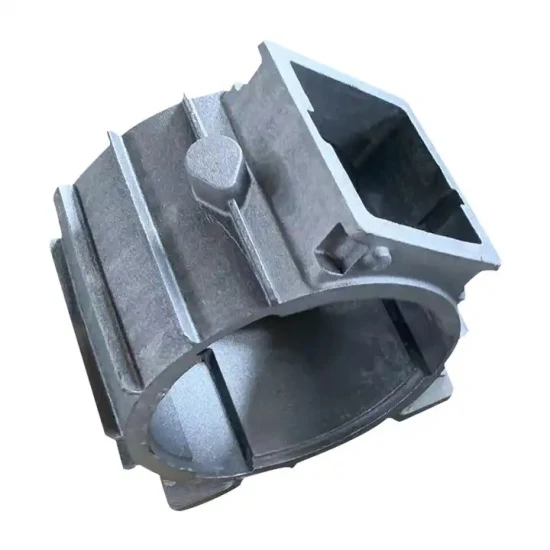Alcast Company for Beginners
Table of ContentsThe Basic Principles Of Alcast Company Some Known Facts About Alcast Company.Little Known Facts About Alcast Company.Alcast Company Things To Know Before You BuyRumored Buzz on Alcast CompanyWhat Does Alcast Company Do?
The refined difference hinges on the chemical web content. Chemical Contrast of Cast Light weight aluminum Alloys Silicon promotes castability by minimizing the alloy's melting temperature and enhancing fluidity throughout spreading. It plays a crucial function in permitting complex molds to be filled precisely. Additionally, silicon adds to the alloy's stamina and use resistance, making it valuable in applications where durability is critical, such as vehicle parts and engine parts.It likewise boosts the machinability of the alloy, making it easier to refine into finished items. In this method, iron adds to the total workability of aluminum alloys.
Manganese adds to the strength of aluminum alloys and enhances workability (Aluminum Castings). It is commonly used in functioned light weight aluminum products like sheets, extrusions, and profiles. The visibility of manganese aids in the alloy's formability and resistance to breaking during manufacture procedures. Magnesium is a light-weight aspect that provides strength and impact resistance to light weight aluminum alloys.
The Ultimate Guide To Alcast Company
It enables the manufacturing of light-weight components with outstanding mechanical buildings. Zinc boosts the castability of aluminum alloys and aids manage the solidification process during casting. It boosts the alloy's strength and firmness. It is typically found in applications where complex forms and fine information are required, such as ornamental spreadings and specific auto parts.

The key thermal conductivity, tensile toughness, yield strength, and elongation vary. Amongst the above alloys, A356 has the greatest thermal conductivity, and A380 and ADC12 have the cheapest.
The Ultimate Guide To Alcast Company

In accuracy casting, 6063 is well-suited for applications where intricate geometries and high-quality surface coatings are extremely important. Examples consist of telecommunication enclosures, where the alloy's remarkable formability permits smooth and cosmetically pleasing designs while preserving architectural integrity. In the Lights Solutions industry, precision-cast 6063 components produce sophisticated and reliable lights components that require elaborate shapes and great thermal efficiency.
It brings about a better surface finish and better rust resistance in A360. The A360 shows superior elongation, making it optimal for complicated and thin-walled elements. In accuracy casting applications, A360 is appropriate for sectors such as Customer Electronic Devices, Telecommunication, and Power Tools. Its enhanced fluidity permits elaborate, high-precision parts like smartphone casings and interaction device real estates.
9 Easy Facts About Alcast Company Shown
Its special residential or commercial properties make A360 a useful selection for accuracy spreading in these markets, boosting item durability and high quality. Light weight aluminum alloy 380, or A380, is an extensively used casting alloy with a number of distinctive characteristics. It offers exceptional castability, making it an optimal option for accuracy casting. A380 exhibits good fluidity when molten, making sure elaborate and detailed molds are properly duplicated.
In accuracy spreading, light weight aluminum 413 shines in the Consumer Electronic Devices and Power Equipment markets. This alloy's remarkable deterioration resistance makes it an exceptional option for exterior applications, making certain lasting, long lasting products in the pointed out industries.
Getting The Alcast Company To Work
Once you have actually chosen that the light weight aluminum die casting procedure appropriates for your project, a crucial following action is picking one of the most appropriate alloy. The light weight aluminum alloy you pick will considerably affect both the spreading process and the homes of the final product. Since of this, you should make your choice meticulously and take an informed technique.
Figuring out one of the most ideal aluminum alloy for your application will imply considering a wide range of attributes. These relative alloy features comply with the North American Pass Away Spreading Association's guidelines, and we have actually separated them into 2 categories. The initial classification addresses alloy characteristics that affect the manufacturing procedure. The 2nd covers features influencing the homes of the end product.
Some Ideas on Alcast Company You Should Know
The alloy you pick for die spreading directly impacts several elements of the casting procedure, like exactly how simple the alloy is to collaborate with and if it is vulnerable to casting problems. Warm splitting, also referred to as solidification cracking, is a normal die casting flaw for aluminum alloys that can lead to inner or surface-level splits or splits.
Specific light weight aluminum alloys are much more at risk to hot splitting than others, and your selection ought to consider this. An additional website here common problem located in the die casting of light weight aluminum is pass away soldering, which is when the actors sticks to the die wall surfaces and makes ejection difficult. It can harm both the actors and the die, so you ought to seek alloys with high anti-soldering residential or commercial properties.
Deterioration resistance, which is already a remarkable attribute of aluminum, can vary significantly from alloy to alloy and is an important characteristic to take into consideration depending on the environmental problems your item will certainly be exposed to (Aluminum Casting). Wear resistance is another property typically looked for in light weight aluminum items and can set apart some alloys